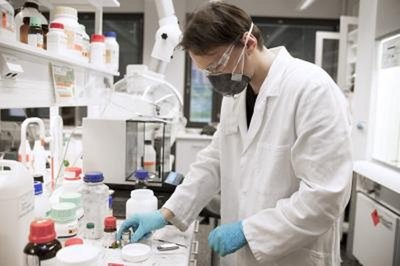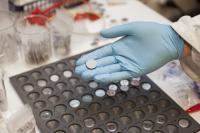Cheaper and safer lithium battery production
Researchers at Aalto University, Finland, have developed a method for producing lithium batteries that is claimed to be cheaper and more environmentally friendly than previously used methods. This new process has succeeded in replacing the harmful methylpyrrolidone (NMP) solvent, which is traditionally used in the manufacturing of electrodes, with water.

Removing this harmful solvent from the production process makes the production of batteries simpler and safer for employees. Production costs of batteries can be decreased by as much as 5%. Some of this savings comes from the reduced cost of transporting and recycling harmful chemicals and a lower risk of exposure to employees.

A prerequisite for giving up the harmful solvent used in batteries was changing the binding agent to a water-soluble one. Finding the new binding agent, acrylic S020, was difficult because it not only had to be water-soluble but also chemically, electrochemically and mechanically ideal for this purpose.
Recently, Finnish Aalto University has achieved many significant results in battery research. Earlier this year, researchers found a way to significantly improve the durability of Lithium-ion batteries by covering the electrodes of lithium iron phosphate batteries with extremely thin protective layers, and by increasing the potential of lithium iron phosphate used as a positive electrode by doping.
Novel method to extend lifecycle of Li-ion batteries
Researchers have uncovered a hidden surface degradation mechanism in the cathodes of lithium-ion...
Sensor could help prevent Li-ion battery fires
Researchers have developed new technology to detect dangerous gas leaks in lithium-ion batteries,...
Study sheds light on energy density of solid-state lithium batteries
Researchers have found that an all-solid-state lithium metal battery achieves an energy density...





